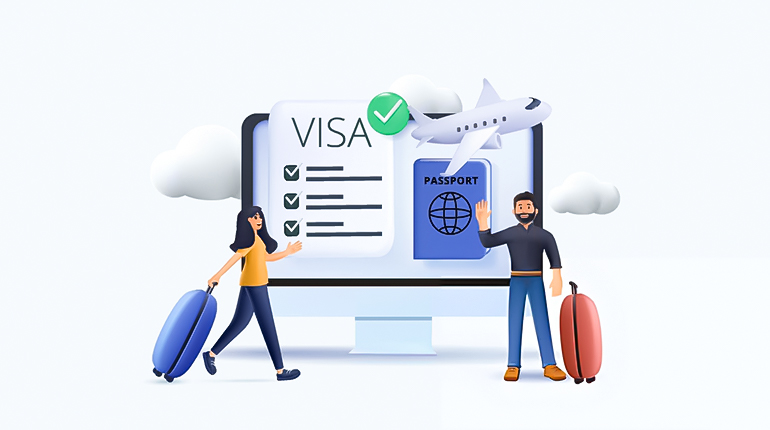- 2/2 Pallabi Main Road, Mirpur 11.5, Dhaka - 1216
Germany Work Visa
Discover comprehensive immigration guidance from a leading overseas consultancy.
Don't know what to do?
Get Free Counselling
Why choose working visa in Germany?
Choosing a working visa for Germany offers several key advantages. Germany has one of the strongest economies in Europe, providing a wealth of job opportunities, especially for skilled workers in fields like engineering, IT, healthcare, and research. The country offers competitive salaries, a high standard of living, and strong labor protections, ensuring workers are well-supported. Additionally, Germany is known for its work-life balance, excellent healthcare, and social security systems. The potential to apply for permanent residency after five years of work further enhances the appeal of a German working visa, making it an excellent long-term option for professionals seeking career growth and stability.

Top Job Opportunities in Germany








Steps to Work in Germany
What are the Entry Requirements for Work in Germany?
To obtain a work visa for Germany, you need to meet specific entry requirements, including providing necessary documentation and meeting health and safety standards. Ensuring you have all the required paperwork ready will help you navigate the visa application process more smoothly and successfully enter Germany for work. Below are the general requirements for obtaining a visit visa:
- Job Offer
- Valid Passport
- Educational Qualifications
- Work Experience
- Proof of Financial Stability
- Health Insurance
- Language Skills
- Visa Application Form
- Visa Fee
- Proof of Accommodation
- No Criminal Record
Visa Duration and Extension in Germany
Work Visa Duration and Extension
The duration of a work visa in Germany depends on the type of employment and your qualifications. Short-term work visas are typically valid for up to 1 year, while long-term work visas can last up to 4 years, depending on the job and your contract. The EU Blue Card, designed for highly skilled workers, is also valid for up to 4 years and can be extended. Researchers and those on start-up visas can have durations ranging from 1 to 5 years. Extensions are possible if your employment continues beyond the initial visa period, typically for up to 3 years. After living and working in Germany for a certain period, usually 5 years, you may be eligible for permanent residency. To extend your visa, you’ll need to prove that you are still employed, demonstrate financial stability, and show proof of valid health insurance. Additionally, some extensions may require proof of German language proficiency. It is recommended to check with the German authorities for specific guidelines and requirements related to your visa extension.
Residence Permit
A residence permit in Germany allows foreign nationals to live and work in the country for an extended period, typically granted alongside a work visa. It is usually valid for up to four years and can be extended or converted into permanent residency after 5 years, given certain conditions like continued employment and financial stability. The permit grants access to social benefits such as health insurance and social security. To obtain or extend it, you must prove employment, financial stability, valid health insurance, and, in some cases, proficiency in German.
Benefits of Work Visas in Germany
A work visa to Germany offers numerous benefits, including legal employment in one of Europe’s strongest economies, competitive salaries, and career growth opportunities. It grants access to Germany’s social security system, including health insurance, pension plans, and unemployment benefits. Visa holders can also bring family members under certain conditions and may qualify for permanent residency after a few years. Additionally, living and working in Germany provides exposure to a diverse work culture, professional networking opportunities, and access to the broader European job market.

Frequently Asked Questions
Who needs a work visa for Germany?
Non-EU/EEA nationals generally require a work visa to live and work in Germany. EU/EEA citizens do not need a visa but must register upon arrival.
What types of work visas are available for Germany?
Common types include the EU Blue Card, General Employment Visa, Job Seeker Visa, and the IT Specialist Visa.
What are the eligibility requirements for a Germany work visa?
You typically need a valid job offer, relevant qualifications, proof of financial stability, and health insurance.
How long does it take to process a Germany work visa?
Processing times vary but generally take between 4 to 12 weeks, depending on the embassy and application completeness.
Can I bring my family on a work visa?
Yes, you can apply for a family reunification visa, allowing your spouse and children to join you in Germany.
How long is a Germany work visa valid?
Work visas are typically issued for up to four years or based on the employment contract duration. They can be extended or lead to permanent residency.
Can I change jobs while on a work visa in Germany?
Yes, but you may need to notify the authorities and, in some cases, apply for a visa modification if your new job differs significantly from your original employment.
Is knowledge of German required for a work visa?
It depends on the job. Some fields, like healthcare, require German proficiency, while others, such as IT, may accept English-speaking professionals.
Can a work visa lead to permanent residency in Germany?
Yes, after 33 months (or 21 months with an EU Blue Card and German proficiency), you may qualify for a permanent residence permit.
What happens if my work visa expires?
You must either renew your visa, apply for a different residence permit, or leave Germany before the visa expires to avoid legal issues.